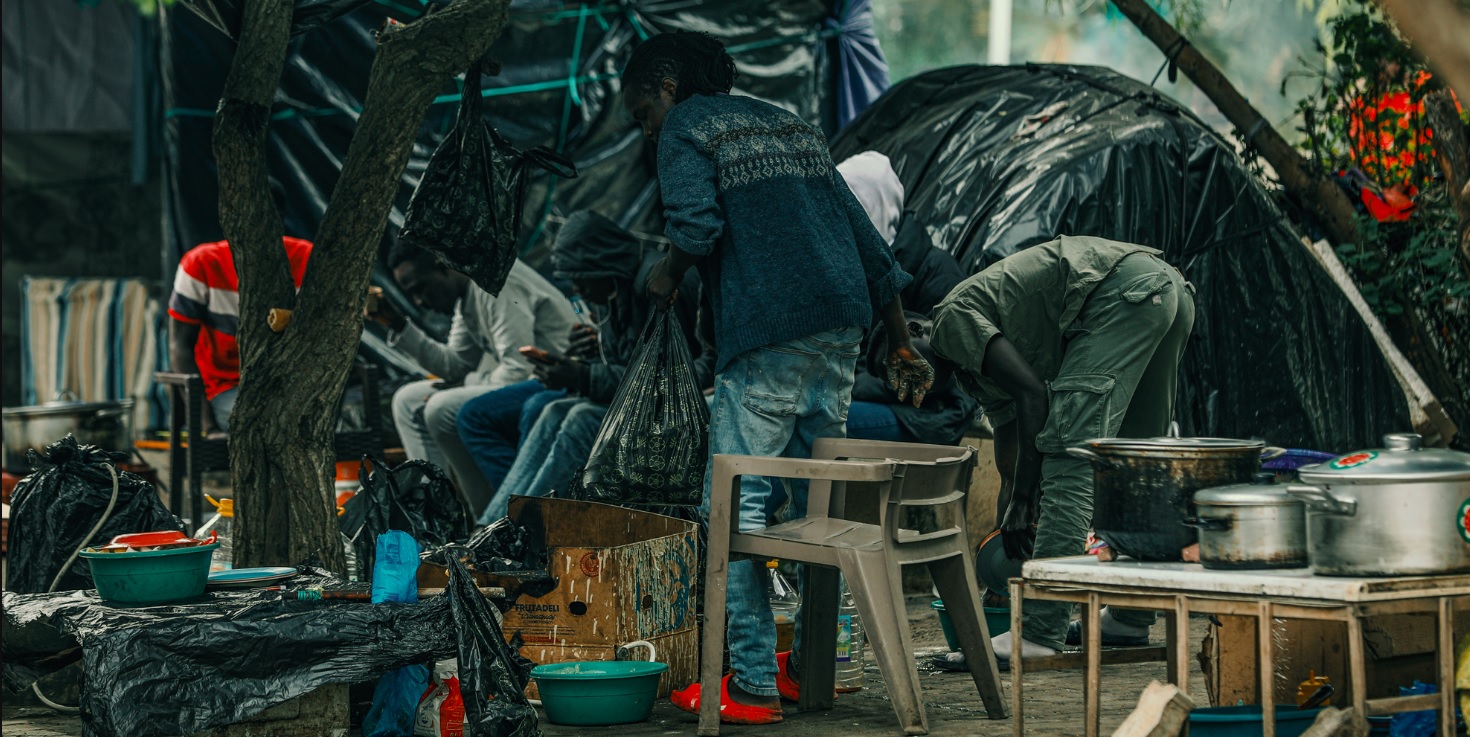
3 Sudanese Missing After Their Boat was Attacked by Tunisian Security Forces
moatinoon
Thirty-eight Sudanese survived and three others went missing while two survivors received treatment after their boat was attacked by Tunisian border guards last Tuesday off the coast of Tunisia, according to Sudanese refugees in the area.
One of the refugees, in a phone call with "Citizens," stated that the boat left the Jebiniana area, located on the Mediterranean coast about 80 km from the capital of Sfax Governorate, early Tuesday morning on July 16. The boat was attacked by security forces while still in Tunisian territorial waters, destroyed, and then set on fire.
He added that the security forces returned hours later and rescued 38 Sudanese who managed to survive. One of the survivors sustained burns and another suffered fractures. The missing individuals are identified as Hassan Abu, Tijani Mohamed, and Ahmed Yahya.
Hundreds of Sudanese refugees fleeing the war that broke out in Sudan last year are located in the Mahdia and Amra areas of the Jebiniana delegation, hoping to reach southern Europe. Mahdia and Amra are the closest points to the island of Lampedusa in southern Italy, a journey of less than 20 hours by boat.
The Sudanese refugees live in scattered groups in the open air among the olive groves west and east of Mahdia under difficult conditions.
The refugees say that the authorities do not consider their status as war refugees and subject them to harsh treatment. Security forces conduct continuous raids everywhere, carrying out arrests on the streets and in shops with plainclothes officers. They strip the refugees of phones, money, and any other possessions and detain some while leaving others in the desert at the Algerian border after taking their clothes and leaving them without food or water. Some are believed to have died en route, according to Sudanese refugees.
The Sudanese refugees claim that Tunisian authorities have blocked all means of living, especially in the Amra and Jebiniana areas, where they cannot work or move freely in the streets or obtain basic necessities from shops. The authorities have expanded their crackdown on refugees and prohibited financial transfer companies like Western Union and banks from dealing with them. Shopkeepers are hesitant to provide even simple assistance, such as charging phone batteries or using identity cards to conduct financial transfers on behalf of migrants, for fear of facing repercussions.
A local Tunisian newspaper quoted a Sudanese refugee saying, "Taxi drivers refuse to take us in their cars because many of them fear police checkpoints." The Tunisian authorities have been conducting a campaign to expel migrants for months.
The newspaper added that finding a tent and blankets to ward off the cold is considered a "stroke of luck" for Sudanese refugees living in makeshift camps.
This climate of fear has led to a reluctance among some Tunisians to engage with migrants. Landlords evicted them from their homes, employers dismissed them from their jobs, and they were left to fend for themselves.
There are no recent statistics on the number of Sudanese refugees in Tunisia, but local Tunisian reports mentioned in March that 40% of the total number of refugees and migrants in Tunisia, which exceeds 13,000 people, are Sudanese.

